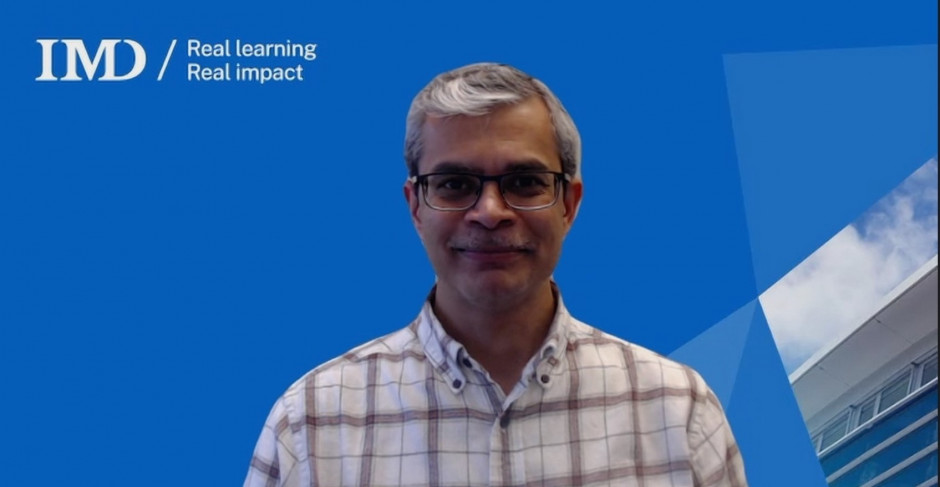- EDITIONS
- FOR THE MEDIA
- CONTACT
- EEC MEMBERS
- EEC TRENDS
- PO POLSKU

AI is a powerful tool that has a profound impact on business. “I don't think there is any alternative”, says Amit Joshi, professor at Switzerland's IMD – International Institute for Management Development, an expert in AI, analytics and marketing strategy, in an interview with WNP.PL.
“Artificial intelligence is going to be a really big thing this year, and the main reason why it's going to happen, I think, is because of generative artificial intelligence – tools like ChatGPT, which is just a year old. Those tools have given access to AI to everyone. Our children in schools now have the same access to AI as top executives in large companies, says Professor Amit Joshi, AI, analytics and marketing strategy specialist and director of the Digital Excellence Diploma at IMD – International Institute for Management Development in Lausanne.
On the one hand, access to AI exclusively through the internet means its democratisation; on the other hand, it is a powerful tool that will affect the productivity and creativity not only of individuals, but also of businesses, organisations or institutions.
“AI has always been available, but only to people who could do programming. In short: some technical programming skills were needed to use it. Today, with generative AI, extended language models, programmes such as ChatGPT or Gemini from Google, AI has become democratic”, believes Professor Joshi.
According to the expert, AI can help at every level of the company: from serving customers – and serving them in multiple languages – to creating new products and materials.
“AI for the first time can create things that in reality do not yet exist (...). So we are talking about the design of different products, we are talking about new types of medicines, we are talking about new materials of different kinds that have a smaller carbon footprint, that are lighter, that are more efficient. And let's remember: it's only been a year since we used it. Imagine what we will be able to do in the next ten years”, emphasises Professor Amit Joshi.
Professor Amit Joshi will be a guest at the European Economic Congress
In the opinion of the Lausanne expert, there is no alternative to AI-based development today. “To be honest, I think the genie is out of the bottle. It will not be possible to lock it back in there. I don't think there is any alternative. I think what companies should be doing now instead of saying: ‘I'm not going to use it’, they should say: ‘AI is already here, I have to use it’”, he says.
Professor Amit Joshi will be speaking at the European Economic Congress in Katowice by invitation of Queen Hedvig Academy in May this year. Among other things, he will speak about the impact of artificial intelligence and generative artificial intelligence on the Polish and European economy.

You watching archival version of European Economic Congress
What you can do:
Go to the current edition page or Continue browsing